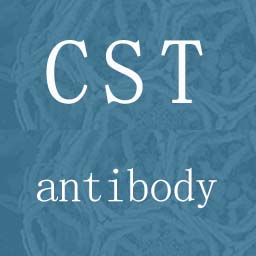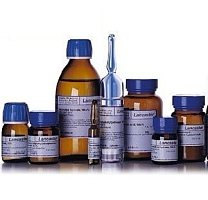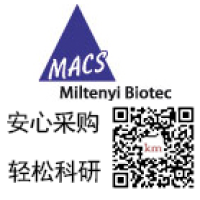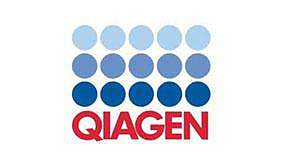
产品详情
文献和实验
相关推荐
保存条件 :低温
保质期 :一年
英文名 :SimpleChIP® Human β-Actin 3' UTR Primers
库存 :大量
供应商 :科敏商城
CAS号 :ChIP
规格 :500 ul (250 PCR reactions)


品牌:CST,产品名称:SimpleChIP Human β-Actin 3' UTR Primers #13669
英文名称:SimpleChIP® Human β-Actin 3' UTR Primers
Product name:SimpleChIP® Human β-Actin 3' UTR Primers #13669
Isotype:Mouse IgG1
Sensitivity:Endogenous
MW(kDa):37
Applications:ChIP
Background: The chromatin immunoprecipitation (ChIP) assay is a powerful and versatile technique used for probing protein-DNA interactions within the natural chromatin context of the cell (1,2). This assay can be used to either identify multiple proteins associated with a specific region of the genome or to identify the many regions of the genome bound by a particular protein (3-6). ChIP can be used to determine the specific order of recruitment of various proteins to a gene promoter or to "measure" the relative amount of a particular histone modification across an entire gene locus (3,4). In addition to histone proteins, the ChIP assay can be used to analyze binding of transcription factors and co-factors, DNA replication factors, and DNA repair proteins. When performing the ChIP assay, cells are first fixed with formaldehyde, a reversible protein-DNA cross-linking agent that "preserves" the protein-DNA interactions occurring in the cell (1,2). Cells are lysed and chromatin is harvested and fragmented using either sonication or enzymatic digestion. Fragmented chromatin is then immunoprecipitated with antibodies specific to a particular protein or histone modification. Any DNA sequences that are associated with the protein or histone modification of interest will co-precipitate as part of the cross-linked chromatin complex and the relative amount of that DNA sequence will be enriched by the immunoselection process. After immunoprecipitation, the protein-DNA cross-links are reversed and the DNA is purified. Standard PCR or quantitative real-time PCR are often used to measure the amount of enrichment of a particular DNA sequence by a protein-specific immunoprecipitation (1,2). Alternatively, the ChIP assay can be combined with genomic tiling micro-array (ChIP on chip) techniques, high throughput sequencing (ChIP-Seq), or cloning strategies, all of which allow for genome-wide analysis of protein-DNA interactions and histone modifications (5-8). SimpleChIP® primers have been optimized for amplification of ChIP-isolated DNA using real-time quantitative PCR and provide important positive and negative controls that can be used to confirm a successful ChIP experiment.
Entrez-Gene Id
60Swiss-Prot Acc.
P607091. Label the appropriate number of PCR tubes or PCR plates compatible with the model of real-time PCR machine to be used. PCR reactions should be performed in duplicate and should include a tube with no DNA to control for contamination, and a serial dilution of a 2% total input chromatin DNA (undiluted, 1:5, 1:25, 1:125), which is used to create a standard curve and determine amplification efficiency.
2. Add 2 μl of the appropriate ChIP DNA sample to each tube or well of the PCR plate.
3. Prepare a master PCR reaction mix as described below. Add enough reagents for two extra reactions to account for loss of volume. Add 18 μl of the master PCR reaction mix to each PCR reaction tube or well of the PCR plate.
Reagent Volume for 1 PCR Reaction (20 μl)
Nuclease-free H2O 6 μl
5 μM SimpleChIP® Primers 2 μl
2X SYBR® Green Reaction Mix 10 μl
4. Start the following PCR reaction program:
a. Initial Denaturation: 95°C for 3 min.
b. Denaturation: 95°C for 15 sec.
c. Anneal and Extension: Primer-specific temp. for 60 sec.
d. Repeat steps b and c for a total of 40 cycles.
5. Analyze quantitative PCR results using software provided with the real-time PCR machine.
Storage:
Supplied in nuclease-free water at a concentration of 5 μM (each primer is at a final concentration of 5 μM). Store at -20°C.
Product Description:
SimpleChIP® Human β-Actin 3' UTR Primers contain a mix of forward and reverse PCR primers that are specific to the human β-actin 3' untranslated region. These primers can be used to amplify DNA that has been isolated using chromatin immunoprecipitation (ChIP). Primers have been optimized for use in SYBR® Green quantitative real-time PCR and have been tested in conjunction with SimpleChIP® Enzymatic Chromatin IP Kits #9002 and #9003 and ChIP-validated antibodies from Cell Signaling Technology®. The β-actin gene is actively transcribed in all cell types and its promoter is highly enriched for histone modifications associated with active transcription, such as histone H3 Lys4 tri-methylation and general histone acetylation. This gene promoter shows very low levels of histone modifications associated with heterochromatin, such as histone H3 Lys9 or Lys27 tri-methylation.


上海恒斐生物科技有限公司
实名认证
钻石会员
入驻年限:12年






